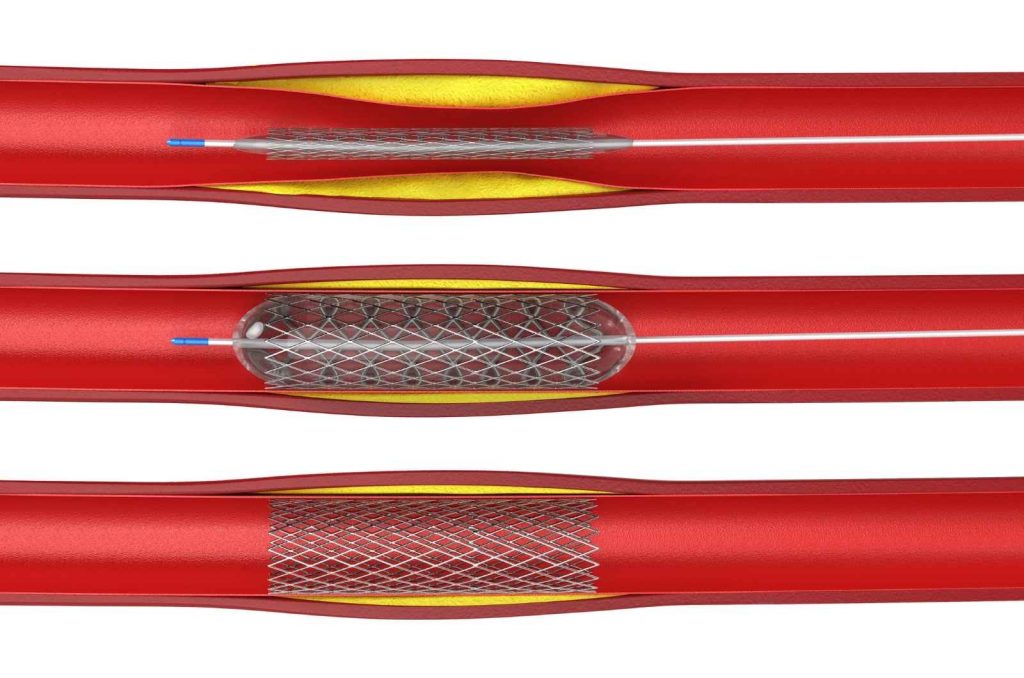
medinol is a pioneering company in the healthcare industry, renowned for its revolutionary advances in the treatment of vascular disease through the development, manufacture and marketing of advanced medical implants. Founded with a mission to improve patient outcomes, Medinol utilizes advanced technology to create implants that offer new hope to people with vascular conditions. With a focus on innovation, quality and patient care, Medinol continues to set new standards in the medical field, making significant strides in the fight against vascular disease worldwide.
?What Exactly Are Vascular Diseases
Vascular diseases encompass a broad category of conditions that adversely affect the blood vessels – the arteries, veins, and capillaries responsible for transporting blood throughout the body. These diseases can manifest in various forms, from peripheral arterial disease, where narrowed arteries reduce blood flow to the limbs, to aneurysms, which are bulges in blood vessel walls that can suddenly rupture, posing severe risks. The essence of vascular diseases lies in their ability to disrupt the normal flow of blood, essential for delivering oxygen and nutrients to every part of the body. When blood flow is compromised, it can lead to a cascade of health problems, potentially culminating in catastrophic events such as heart attacks and strokes. Given the vital role of the vascular system in maintaining overall health, understanding and addressing vascular diseases is crucial. Their diverse nature, combined with the potential for silent progression without early symptoms, underscores the importance of awareness and timely intervention to mitigate the risks they pose to one's health.
?Why Are Vascular Diseases Considered Silent Killers
Vascular diseases are often labeled as "silent killers" due to their insidious nature; they can progress undetected for years without manifesting any noticeable symptoms. This silent progression is particularly dangerous because individuals may not be aware they have a vascular condition until it escalates into a life-threatening situation, such as a heart attack or stroke. The reason behind this stealthy advancement lies in the body's ability to adapt to gradually narrowing arteries or slowly developing aneurysms, masking the immediate impacts of these conditions. By the time symptoms become apparent, the disease may have already caused significant damage or reached an advanced, more dangerous stage. For example, peripheral arterial disease might only reveal itself through leg pain during walking when the arteries are significantly narrowed, limiting blood flow. Similarly, an aneurysm might remain undetected until it ruptures, leading to sudden and severe complications. This characteristic of vascular diseases, to progress unnoticed, underscores the critical importance of regular health screenings and risk factor management as means to detect and address these conditions early, before they result in irreversible harm.
How Do Lifestyle and Other Conditions Influence Vascular Diseases?
Lifestyle choices and underlying health conditions play a significant role in influencing the onset and progression of vascular diseases. Factors such as poor diet, lack of physical activity, smoking, and obesity directly impact the health of blood vessels, contributing to the development of conditions like peripheral arterial disease and aneurysms. For instance, smoking damages the inner lining of arteries, leading to atherosclerosis — a condition characterized by the buildup of plaque that narrows and hardens the arteries. Similarly, a diet high in saturated fats and cholesterol can accelerate this process, further increasing the risk of vascular diseases.
Moreover, conditions such as diabetes and hypertension are closely linked with vascular health. Diabetes, by causing high blood sugar levels, can damage blood vessels over time, making them more susceptible to atherosclerosis. Hypertension, or high blood pressure, exerts extra force against the vessel walls, which can weaken them and make them more prone to aneurysms or other vascular problems.
The interplay between lifestyle, other health conditions, and vascular diseases highlights the importance of holistic health management. By addressing risk factors such as diet, exercise, and controlling chronic conditions, individuals can significantly reduce their risk of developing vascular diseases, underscoring the power of preventive measures in maintaining vascular health.
What Innovations in Medical Technology Aid in Treating Vascular Diseases?
Recent advancements in medical technology have revolutionized the treatment of vascular diseases, offering new hope and improved outcomes for patients. One of the most significant innovations is the development of minimally invasive surgical techniques, such as angioplasty and stenting. These procedures involve the insertion of a small balloon or a stent into narrowed or blocked arteries to restore blood flow, reducing the need for open surgeries and allowing for quicker recovery times.
Another groundbreaking technology is the use of drug-eluting stents, which not only prop open the artery but also slowly release medication to prevent the artery from becoming blocked again. This dual approach has significantly improved the long-term success rates of procedures to treat coronary artery disease and peripheral arterial disease.
Imaging technology has also seen remarkable improvements, with advanced modalities like CT angiography and magnetic resonance angiography providing detailed images of blood vessels. These non-invasive imaging techniques enable early detection and precise assessment of vascular diseases, allowing for timely intervention and personalized treatment plans.
Additionally, wearable technology and mobile health apps have emerged as powerful tools for monitoring and managing vascular health, empowering patients to take an active role in their treatment. These innovations collectively represent a significant leap forward in the fight against vascular diseases, improving diagnosis, treatment, and prevention strategies to enhance patient care and outcomes.
The Importance of Addressing Vascular Diseases
Addressing vascular diseases is paramount due to their potential to cause life-altering complications, including heart attacks and strokes, if left untreated. The silent progression of these conditions underscores the need for regular health screenings and awareness of risk factors. Innovations in medical technology have transformed the landscape of treatment, offering less invasive options and improved patient outcomes. By adopting healthier lifestyle choices and leveraging advancements in medical technology, individuals can significantly reduce their risk of developing vascular diseases. Ultimately, proactive management and treatment of vascular conditions are critical for maintaining overall health and preventing the severe consequences associated with these diseases.
